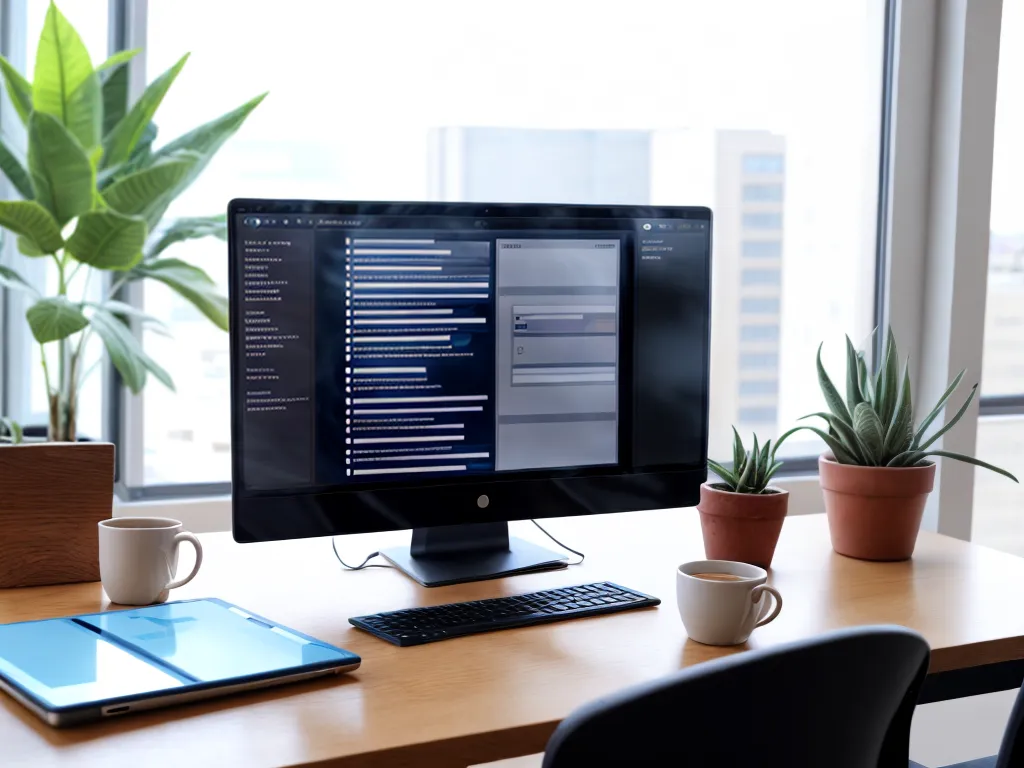
Making Remote Work Secure: Tips for 2024
As remote work becomes more prevalent, it’s crucial for remote workers and companies to take steps to ensure data security. Here are my tips for keeping remote work secure in 2024:
Use a VPN
Using a virtual private network (VPN) is one of the best ways to protect your connection and data when working remotely. A VPN encrypts your internet traffic and obscures your IP address and location. This prevents snooping and makes it harder for cybercriminals to intercept sensitive information.
Some good VPN providers to consider in 2024 are NordVPN, ExpressVPN, and Surfshark. Make sure to choose a provider that offers robust encryption, a strict no-logs policy, and servers located around the world for optimal speeds.
Keep Software Updated
Outdated software often has vulnerabilities that cybercriminals can exploit. To prevent this, update all software on your remote devices as soon as new patches and versions are released. This includes updating:
- Operating systems
- Web browsers
- Video conferencing apps
- Office suites
- Security software
Enable automatic updates whenever possible. Also, remove software you no longer use, as unused programs can pose unseen risks.
Use Strong Passwords
Weak passwords are one of the biggest security pitfalls for remote workers. Avoid common words, phrases, and personal information when creating passwords. Instead, use random combinations of upper and lower case letters, numbers, and symbols.
- Use a unique password for every account.
- Consider using a password manager like LastPass or 1Password to generate and store strong passwords.
- Enable two-factor authentication whenever possible.
Secure Home Networks
Since remote workers often use home Wi-Fi networks, it’s important to ensure your home network is secure:
- Use WPA2 or WPA3 encryption on your wireless router. Avoid outdated WEP encryption.
- Hide your wireless network name by disabling SSID broadcast.
- Use a strong password to access your wireless network.
- Limit access with MAC address filtering if your router allows it.
Also, avoid using public Wi-Fi for sensitive remote work activities. Public networks are notoriously insecure.
Use a Firewall
Firewalls create a barrier between your devices and the open internet. They monitor incoming and outgoing traffic and block potentially harmful connections.
Every Windows PC should have Windows Firewall enabled. For more robust protection, use a third party firewall from a trusted cybersecurity vendor.
On Mac devices, make sure to enable the built-in macOS firewall. Also consider using a third party firewall like Surfshark or Bitdefender.
Secure Mobile Devices
When using smartphones or tablets for remote work, be sure to:
- Set a strong passcode for device access.
- Enable remote wipe capabilities in case your device is lost or stolen.
- Only download apps from trusted sources like the Apple App Store or Google Play Store. Avoid third party app stores.
- Install mobile anti-malware software from trusted cybersecurity companies.
- Keep the OS and apps updated.
- Turn off Bluetooth and Wi-Fi when not in use.
Avoid Public Workspaces
Working remotely from public places like coffee shops comes with risks. Avoid working in public when handling sensitive information. The open Wi-Fi networks in these locations are not secure.
If you must work in public, use a VPN, avoid connecting to public Wi-Fi, and be cautious of shoulder surfers looking at your screen.
Secure Sensitive Data
When dealing with sensitive company or customer data remotely, take steps to keep it secure:
- Encrypt sensitive files and folders.
- Back up data to a secure cloud storage service or external hard drive.
- Wipe data from devices before disposal or reassignment. Use a multi-pass overwrite tool.
- Anonymize data by removing personally identifiable information when possible.
Beware of Phishing Attempts
Cybercriminals frequently target remote workers with phishing emails aimed at stealing login credentials and data. Be wary of unsolicited emails, especially those requesting sensitive information or containing suspicious attachments or links. Verify the sender’s identity before responding.
Separate Work and Personal Accounts
Avoid using your personal accounts and devices for remote work whenever possible. Keep work and personal logins, devices, contact lists, and usage separated to limit security and privacy risks.
If you must mix work and personal, use separate user profiles or partitions to maintain some separation.
Staying secure while working remotely requires vigilance, but following these tips will go a long way towards keeping your devices, connections, and data protected. As cyberthreats evolve, make sure to keep your remote work security practices current.












